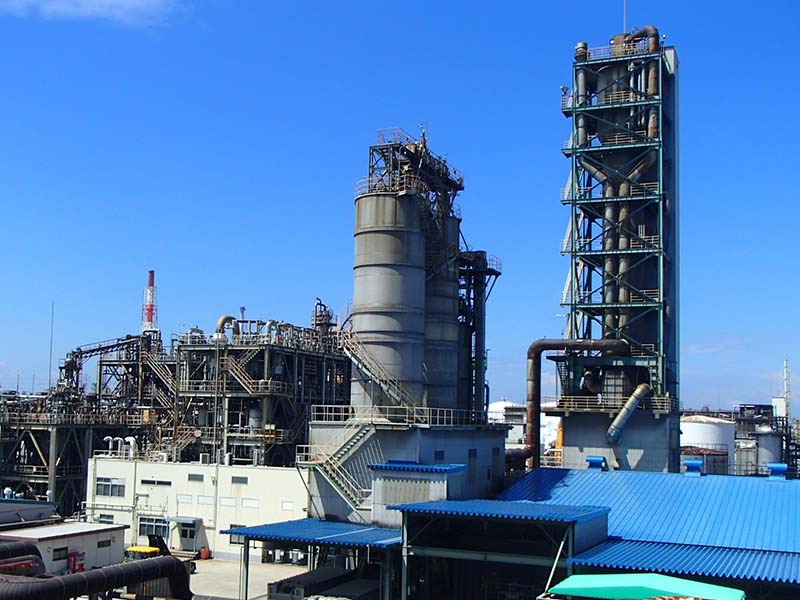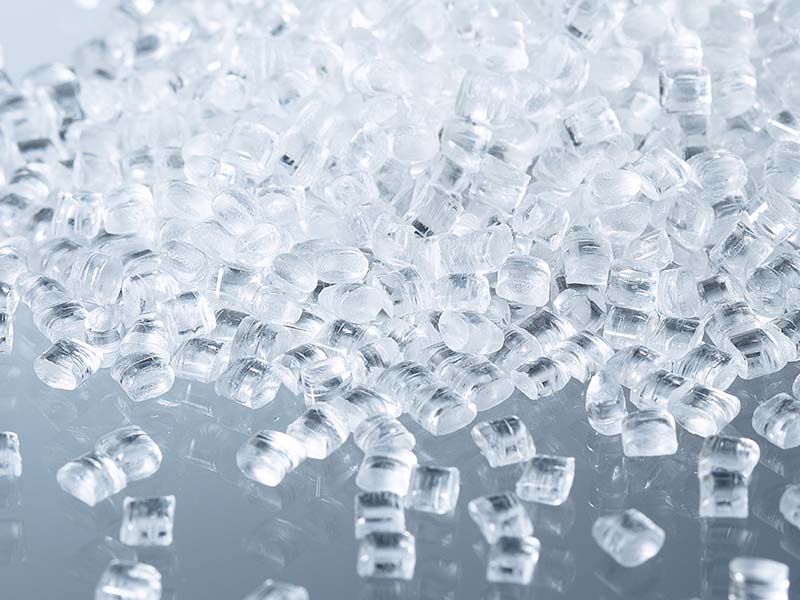Mitsui Chemicals and Teijin to Market Biomass-derived BPA and Polycarbonate Resins
2022.08.09
Mitsui Chemicals, Inc.
Teijin Limited
Tokyo, Japan, August 9, 2022 --- Mitsui Chemicals, Inc. and Teijin Limited jointly announced today that they will become Japan’s first companies to develop and market biomass-derived bisphenol A (BPA) and polycarbonate (PC) resins, that will support efforts to achieve carbon neutrality by reducing greenhouse gas (GHG) emissions throughout product lifecycles.
The joint initiative follows Mitsui Chemicals’ receipt of ISCC PLUS certification from the International Sustainability and Carbon Certification (ISCC) , based on which Mitsui Chemicals will begin supplying biomass BPA produced with the mass-balance approach . In the ISCC PLUS-certified mass-balance approach, materials are verifiably tracked through complex value chains, as in the case of biomass-derived raw materials being mixed with petroleum-derived raw materials to create products.
Teijin also will begin developing and producing biomass PC resin using the same BPA.
In May 2022, Mitsui Chemicals acquired ISCC PLUS certification for BPA raw material used in PC resins. Mitsui Chemicals will now become the first Japanese company to produce commercial biomass-derived BPA offering the same physical characteristics as those of conventional petroleum-derived BPA.
Teijin will procure biomass-derived BPA from Mitsui Chemicals to produce biomass-derived PC resins possessing the same physical characteristics as the company’s existing petroleum-derived PC resins, which will allow these new biomass-derived versions to be used in commercial applications such as automotive headlamps and electronic components.
By expanding sales of products containing plastics produced through biomass conversion, the two companies aim to develop and produce more environmentally friendly products throughout their supply chains. Mitsui Chemicals, for example, is considering expanding its procurement network for bio-based hydrocarbons in order to provide stable supplies of related products to the market. The company, which is in the process of acquiring ISCC PLUS certification for biomass naphtha derivatives, has already received certification for phenol, acetone, BPA and alpha-methyl styrene. The aim is to acquire ISCC PLUS certification for all of the company’s phenol-chain products and then begin sales within fiscal 2023 ending in March 2024. Teijin also expects to acquire ISCC PLUS certification in the first half of fiscal 2023 and thereafter start commercial production of biomass-derived PC resins. Teijin plans to emphasize to customers that conventional petroleum-derived PC resins can be easily replaced with biomass-derived versions for more environmentally friendly products.


The demand to reduce GHG emissions throughout supply chains in order to support carbon neutrality is rapidly increasing, creating needs for more low-environmental impact products. PC resins recycled from used final-products are applicable in automotive and electronics uses, so the development of diverse low-environmental impact PC resins is highly anticipated.
Since December 2021, Mitsui Chemicals has been using naphtha crackers as core equipment in its petrochemical plants, allowing petroleum-derived naphtha to be replaced with waste vegetable oil and residual oil-derived bio-based hydrocarbons . The company plans to continue introducing derivatives by using the ISCC PLUS-certified mass-balance approach to produce biomass-derived raw materials via chemical reaction. Teijin, meanwhile, will continue developing low-environmental impact recycled PC resins, in addition to conventional PC resins using petroleum-derived raw materials, aiming to introduce new environmentally friendly PC resins.
Reference
Mitsui Chemicals' goals for reduced environmental impact
Mitsui Chemicals declared in November 2020 that it will endeavor to achieve carbon neutrality by 2050. To this end, Mitsui Chemicals is pursuing a carbon neutral strategy based on the two-pronged approach of reducing the Mitsui Chemicals Group’s Scope 1 direct emissions by group businesses themselves and Scope 2 indirect emissions from the use of energy supplied by other companies while also maximizing the ability of the Group’s products to reduce greenhouse gas emissions.
Teijin's goals for reduced environmental impact
The Teijin Group also has declared its own plan to reduce internal GHG emissions (Scope 1 and 2) to virtually zero by fiscal 2050. In the interim, the target is a 30% reduction by fiscal 2030 compared to fiscal 2018, including by cutting emissions from Teijin products in use by an amount greater than emissions from its total supply chain by fiscal 2030. Teijin also plans to reduce emissions from sources accounting for two-thirds or more of total Scope 3 emissions (from purchased goods and services except trading business) by 15% as of fiscal 2030 compared to fiscal 2018.
About Mitsui Chemicals (Tokyo: 4183, ISIN: JP3888300005)
Mitsui Chemicals’ roots can be traced back to 1912 when it began producing raw material for chemical fertilizers from coal gas by products, the first company in Japan to do so. This undertaking significantly contributed to increasing agricultural productivity, a major social issue at the time. Later, the company evolved its technology from coal chemicals to gas chemicals, and in 1958 it built Japan’s first petrochemical complex and so provided impetus to Japan’s industry. Today, the company boasts many world-class products with sales standing at over 1,600 billion yen and with over 160 companies in 30 countries. Its business portfolio includes Life & Healthcare Solutions, Mobility Solutions, ICT Solutions, Basic & Green Materials.
Mitsui Chemicals will continue to contribute to solving social challenges with its state-of-the-art technology and by "Creating New Customer Value through Innovation".
Please visit https://www.mitsuichem.com
About the Teijin Group
Teijin (TSE: 3401) is a technology-driven global group offering advanced solutions in the fields of environmental value; safety, security and disaster mitigation; and demographic change and increased health consciousness. Originally established as Japan's first rayon manufacturer in 1918, Teijin has evolved into a unique enterprise encompassing three core business domains: high-performance materials including aramid, carbon fibers and composites, and also resin and plastic processing, films, polyester fibers and products converting; healthcare including pharmaceuticals and home healthcare equipment for bone/joint, respiratory and cardiovascular/metabolic diseases, nursing care and pre-symptomatic healthcare; and IT including B2B solutions for medical, corporate and public systems as well as packaged software and B2C online services for digital entertainment. Deeply committed to its stakeholders, as expressed in the brand statement “Human Chemistry, Human Solutions,” Teijin aims to be a company that supports the society of the future. The group comprises some 170 companies and employs some 20,000 people across 20 countries worldwide. Teijin posted consolidated sales of JPY 926.1 billion (USD 7.2 billion) and total assets of JPY 1,207.6 billion (USD 9.4 billion) in the fiscal year that ended on March 31, 2022
Please visit www.teijin.com
